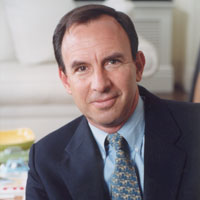|
|
||||||||||||||||
|
|
After the Supreme Court's 2014 McCutcheon v FEC ruling doing away with "aggregate" limits . . . and then the year-end Republican requirement that giving limits to national committees be ten-tupled (or else they'd shut down the government) . . . the federal giving limit has gone from $123,200 for the two-year cycle to approximately $5.6 million (though theoretically higher). Each spouse can do that much. As follows: FEDERAL CANDIDATES Each citizen or green card holder may give up to $2,700 to any given primary or general election campaign. So not more than $5,400 to any one candidate. (Even if there is no primary opponent, you can still give to the primary as well as the general.) FEDERAL COMMITTEES & PACS Not more than $5,000 a year to any given PAC. Not more than $10,000 a year to the "federal account" of any state party committee. Not more than $33,400 a year to any of each party's three national committees (RNC, RSCC, RCCC, DNC, DSCC, DCCC). Not more than $100,200 a year to the newly authorized "building operations accounts" of any of those national committees. Not more than $100,200 a year to the newly authorized "recount accounts" of any of those national committees. Not more than $100,200 a year to the newly authorized "convention accounts" of the DNC or RNC. (So you and your spouse can each give the RNC and the DNC $334,000 a year, all told, plus whatever you give the other party committees and PACs and candidiates.) STRATEGY SUGGESTIONS There will always be exceptions, but with limited resources and so much at stake . . . 1. Don't give to candidates who can't win -- or can't lose. Save your precious dollars, in the main, for candidates in genuine toss-up races. 2. Reserve most fire power for general election races. Namely, those between Democrats and Republicans -- not races among Democrats, any one of whom would likely be more progressive than her or his general election Republican opponent. It matters less which liberal becomes mayor of Madison, Wisconsin, say, than which candidate -- Democrat or Republican -- becomes governor of Wisconsin . . . or the deciding vote in the House or Senate . . . or President of the United States. 3. Focus on turn-out. Most political contributions get warehoused until the fall and then go to fund an ocean of TV advertising that -- while necessary -- changes few minds and inspires few to vote. If anything, all that conflicting advertising turns people off, not out. The sweet spot is the ground game: neighbor to neighbor organizing for registration and turn-out . . . because once at the polls, progressive voters tend to vote not just for a congresswoman whose ad they saw, but for progressives up and down the ticket -- that congresswoman, but also the, governor, mayor, senator, state senator, state assemblyman -- and even the ballot initiatives progressives hope to win. The successful "Obama" ground-game machine that resided in Chicago from 2008-2012 now resides largely at the DNC, which provides the tech team and infrastructure that underlie Democratic turn-out. Lessons have been learned from 2014. 4. Give to 527's and c4's after maxing out to the federal committees of your choice. They do vital work but are a lower priority for three reasons. First, their resources cannot be spent at the direction of or in coordination with federal campaigns themselves. Second, by law, the ad rates they pay are much higher than the favored rates party committees get. Third, they can legally accept unlimited overnight wire transfers from concerned billionaires to meet emergencies. Not so federal candidates or committees. The contributions they can accept are limited by law, as described above. An exception I've made personally are targeted voter-registration efforts, some of which have the added appeal of being 501c-3. 5. Don't be disheartened by the new "limits." If everyone gives what she or he can -- millions of small contributions and thousands of large ones -- your party (whichever that is) will have the resources to win.
|
|
|
|
|||||||||||||
|
Last Modified 2015-02-09 |
|
||||||||||||||||



